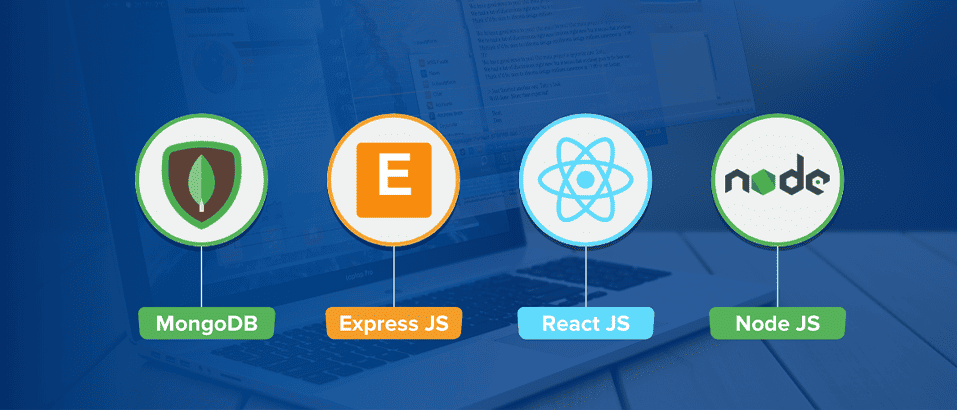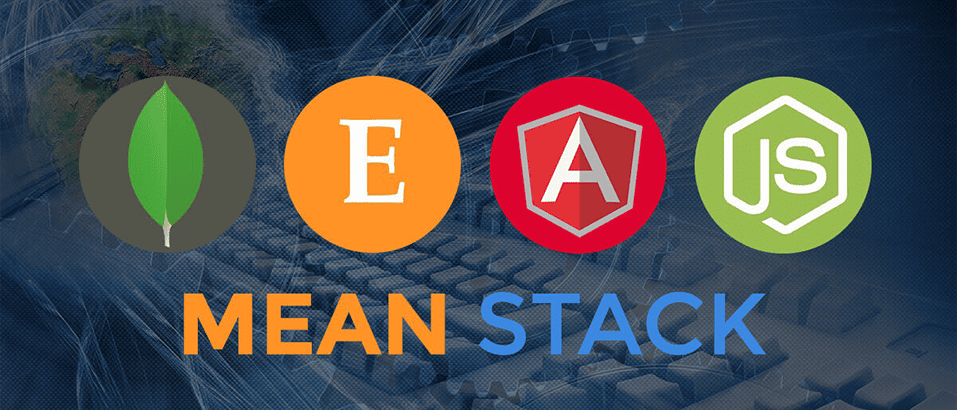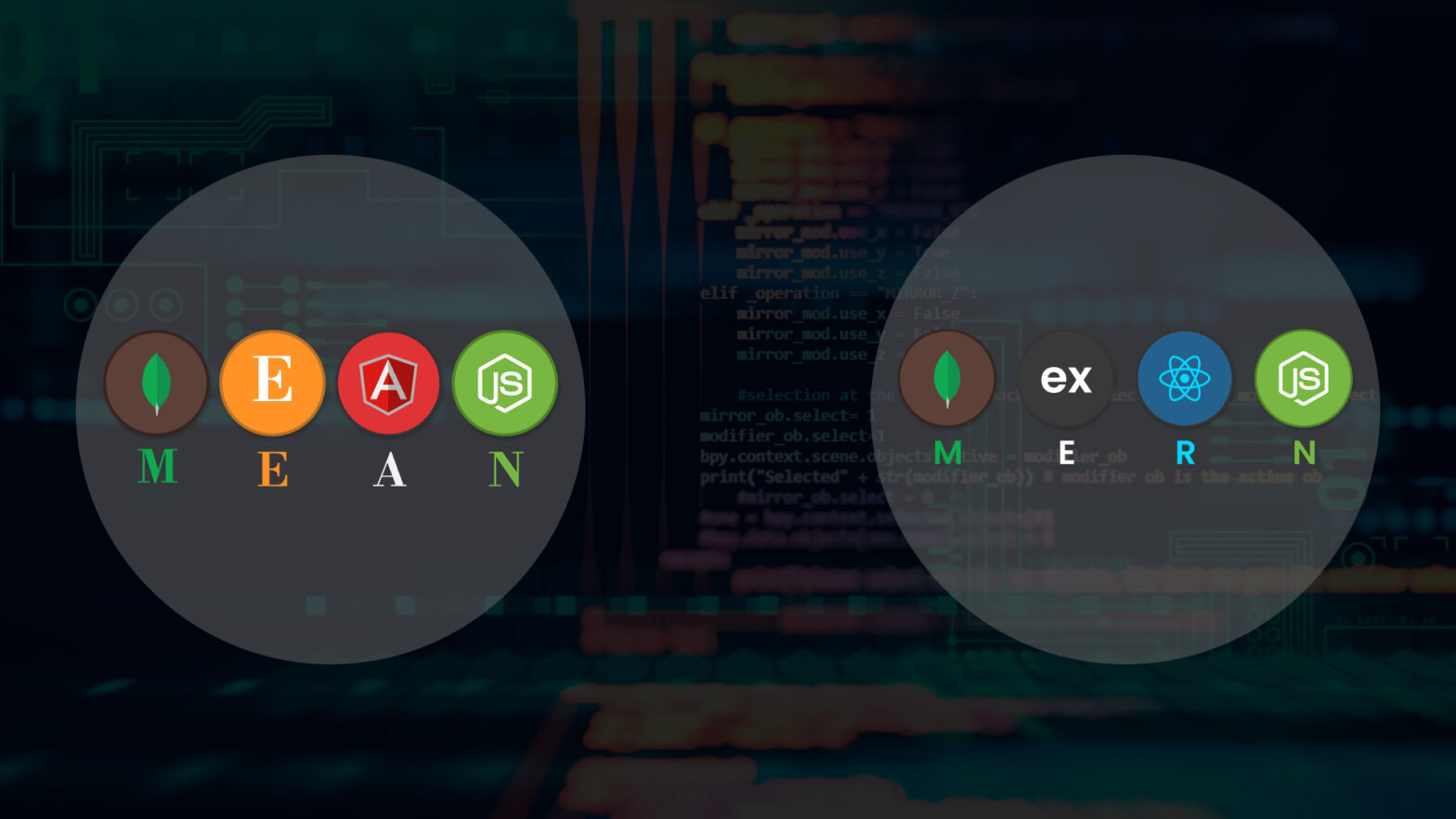When it comes to building a web application, one of the most critical decisions you need to make is choosing the right technology stack. A technology stack is a collection of technologies, frameworks, and libraries that developers use to build web applications. There are many technology stacks available, but MERN and MEAN are two of the most popular. In this blog post, we’ll compare MERN vs. MEAN and help you decide which stack is right for your web application.
What is MERN?
MERN is an acronym that stands for MongoDB, Express.js, React, and Node.js. MongoDB is a popular NoSQL database, Express.js is a backend web framework for Node.js, React is a frontend JavaScript library, and Node.js is a JavaScript runtime built on Chrome’s V8 engine.
MERN is a full-stack JavaScript stack that allows developers to build web applications using a single language, JavaScript. This makes it easier for developers to switch between frontend and backend development without having to learn a new language.
MERN is known for its flexibility and scalability. It can handle large and complex web applications with ease. MERN also has a large and active community, which means there are plenty of resources available for developers to use.
What is MEAN?
MEAN is an acronym that stands for MongoDB, Express.js, Angular, and Node.js. Angular is a frontend JavaScript framework developed by Google. Like MERN, MEAN is a full-stack JavaScript stack that allows developers to build web applications using a single language, JavaScript.
MEAN is known for its robustness and performance. It can handle large and complex web applications with ease. MEAN also has a large and active community, which means there are plenty of resources available for developers to use.
MERN vs. MEAN: A Comparison
Now that we’ve introduced MERN and MEAN, let’s compare them in terms of their features, advantages, and disadvantages.
- MongoDB:
Both MERN and MEAN use MongoDB, a popular NoSQL database. MongoDB is known for its flexibility, scalability, and ease of use. It can handle large and complex data sets with ease. - Express.js:
Both MERN and MEAN use Express.js, a backend web framework for Node.js. Express.js is known for its simplicity and ease of use. It allows developers to build RESTful APIs quickly and easily. - Node.js:
Both MERN and MEAN use Node.js, a JavaScript runtime built on Chrome’s V8 engine. Node.js is known for its performance and scalability. It can handle large amounts of traffic with ease. - React vs Angular:
MERN uses React, a frontend JavaScript library developed by Facebook. React is known for its simplicity and ease of use. It allows developers to build complex user interfaces quickly and easily.
MEAN uses Angular, a frontend JavaScript framework developed by Google. Angular is known for its robustness and performance. It allows developers to build complex web applications quickly and easily.
When it comes to choosing between React and Angular (MERN vs MEAN), it really comes down to personal preference. Both are great frameworks with their own strengths and weaknesses.
Advantages and Disadvantages of MERN:

Advantages:
- MERN is a flexible and scalable stack that can handle large and complex web applications.
- MERN allows developers to build web applications using a single language, JavaScript.
- MERN has a large and active community, which means there are plenty of resources available for developers to use.
Disadvantages:
- MERN can be difficult for beginners to learn, especially if they are not familiar with JavaScript.
- MERN requires a lot of setup and configuration, which can be time-consuming.
Advantages and Disadvantages of MEAN:

Advantages:
- MEAN is a robust and performant stack that can handle large and complex web applications.
- MEAN allows developers to build web applications using a single language, JavaScript.
- MEAN has a large and active community, which means there are plenty of resources available for developers to use.
Disadvantages:
- MEAN can be difficult for beginners to learn, especially if they are not familiar with JavaScript.
- MEAN can be overly complex for simple web applications.
- Angular, which is used in MEAN, has a steep learning curve.
Which Stack Is Right for Your Web Application?
So, MERN vs MEAN, which stack is right for your web application? It really depends on your specific needs and requirements. Here are some factors to consider when making your decision:
- Project Complexity:
If your web application is going to be large and complex, then both MERN and MEAN are good options. Both stacks can handle large amounts of data and traffic with ease. - Development Experience:
If you have experience with either React or Angular, then that may influence your decision. If you are more comfortable with React, then MERN may be the better choice for you. If you prefer Angular, then MEAN may be the better choice. - Project Timeline:
If you need to build a web application quickly, then MERN may be the better choice. MERN requires less setup and configuration, which can speed up development time. However, if performance is a priority, then MEAN may be the better choice. - Team Size:
If you have a large development team, then MEAN may be the better choice. Angular has a steeper learning curve than React, but it allows for more collaboration between team members.
Conclusion:
In conclusion, both MERN and MEAN are great options for building web applications. They are both full-stack JavaScript stacks that allow developers to build web applications using a single language, JavaScript. MERN is known for its flexibility and scalability, while MEAN is known for its robustness and performance.
When choosing between MERN and MEAN, it really comes down to your specific needs and requirements. Consider factors such as project complexity, development experience, project timeline, and team size when making your decision. Ultimately, the stack you choose should help you build a web application that meets your needs and exceeds your expectations.
